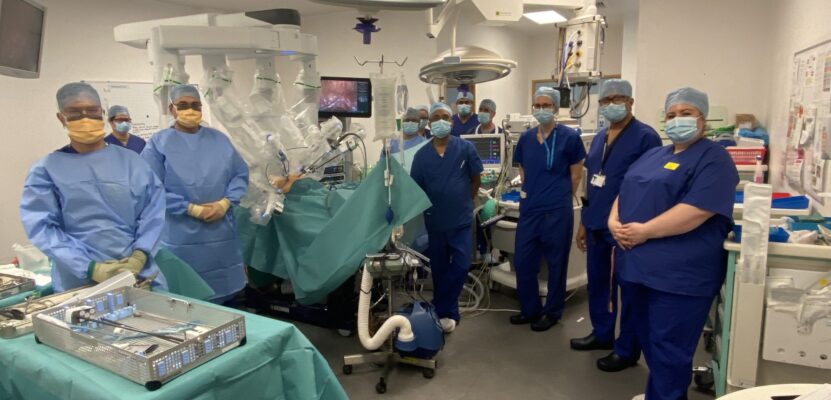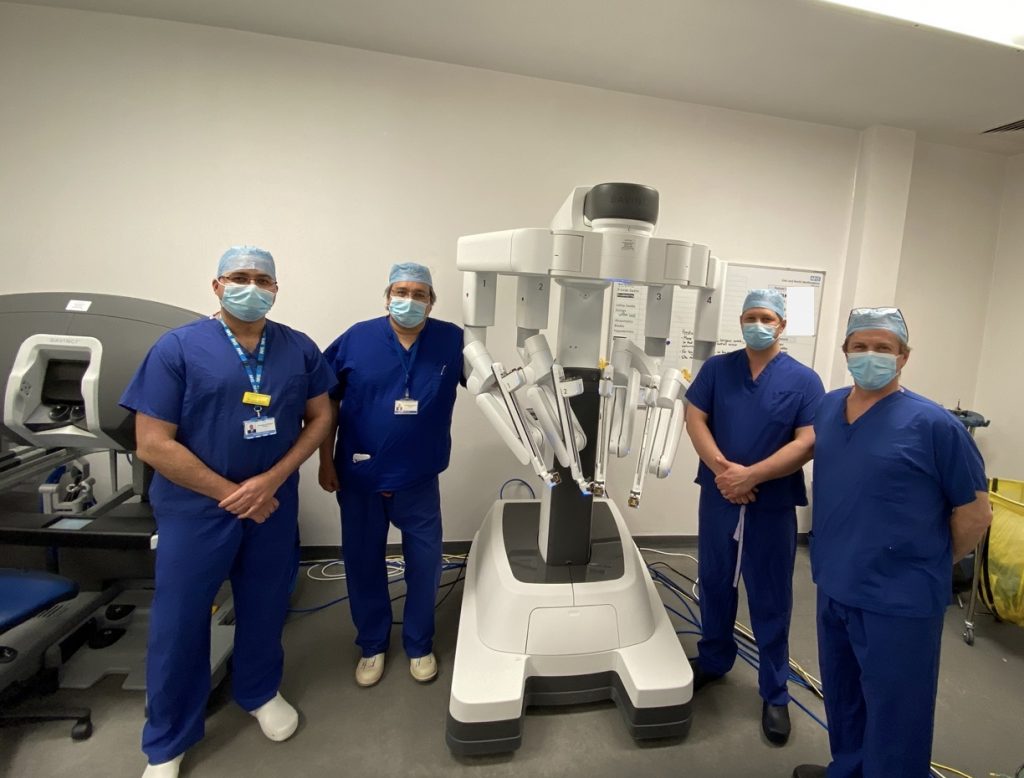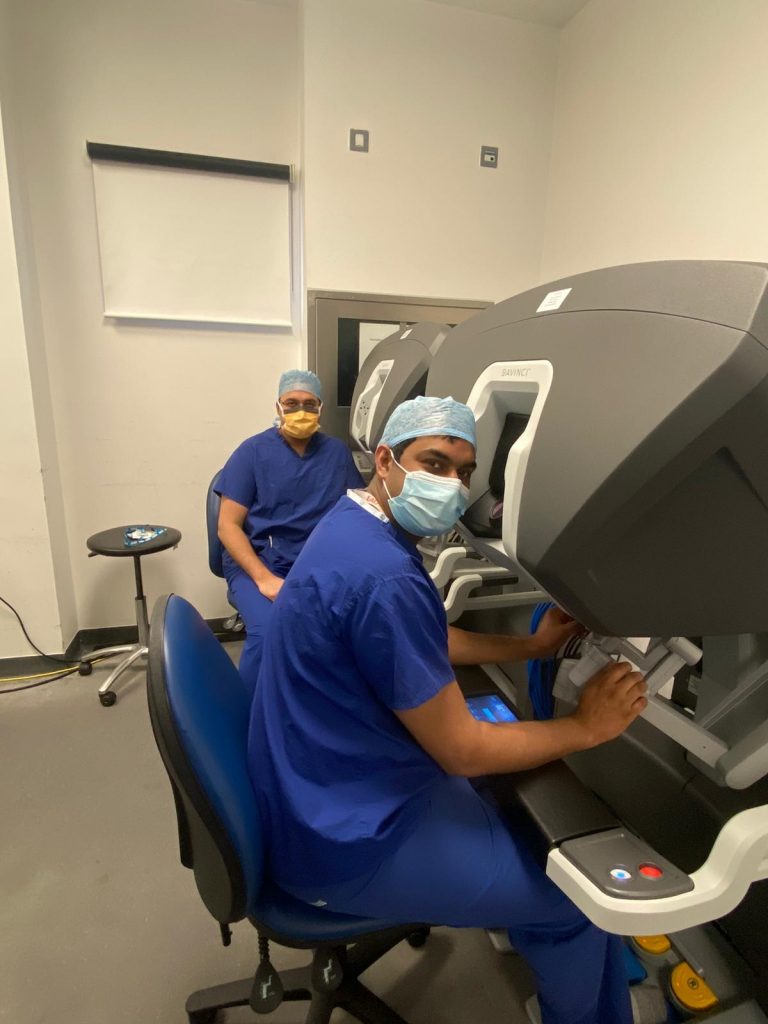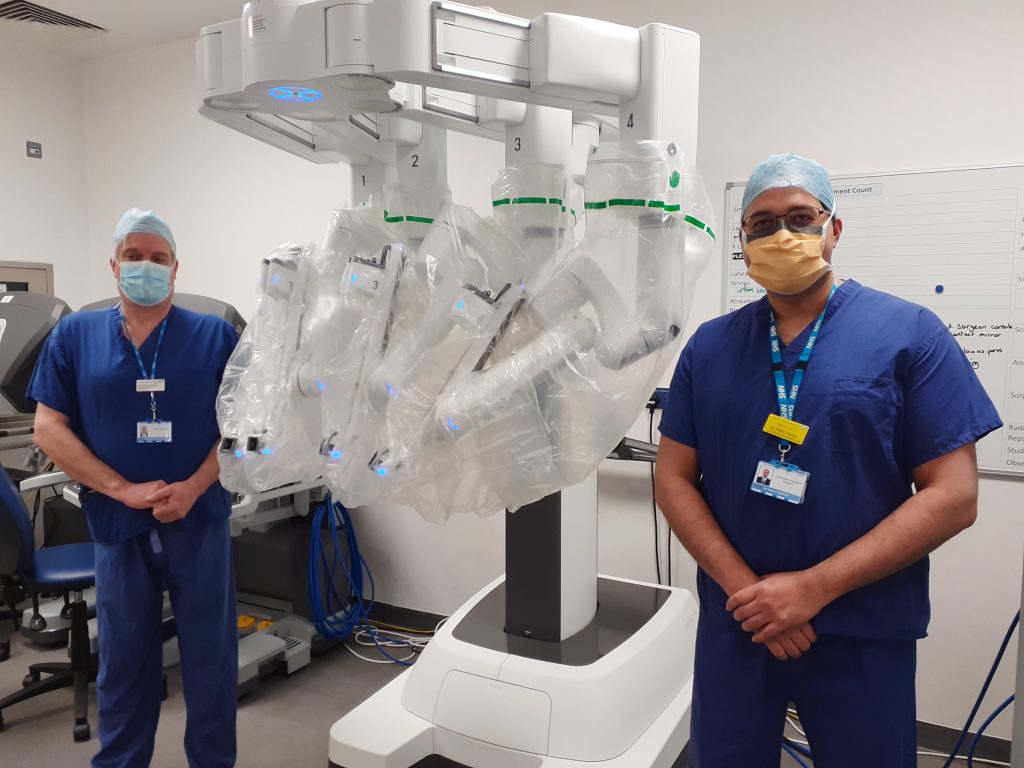
A new state-of-the-art robot is already making a difference to patients undergoing cancer operations at Stevenage’s Lister Hospital, one of the first hospitals of its size to adopt the very latest technology.
Skilled surgeons from the hospital’s urology department were the first behind the controls of the da Vinci Xi surgical system, which improves the efficiency of surgery in certain complex operations – ultimately leading to better outcomes for patients.
The first patient to benefit from this advanced technology built by robotic-assisted surgery specialists Intuitive had prostate cancer and was considered high risk, but was home less than 24 hours after their successful surgery at Lister’s Treatment Centre.

And since the landmark launch two months ago, more than 70 patients have now had successful operations relating to cancers affecting organs such as the bladder, kidneys and prostate –with urology consultants Mr Jim Adshead, Mr Tim Lane, Mr Nikhil Vasdev and Mr Ben Pullar all performing operations using the robot.
Mr Vasdev – who carried out the first operation and is also the associate medical director for cancer services at East and North Hertfordshire NHS Trust, which runs the Lister – said: “One of the big advantages of robotic surgery compared to traditional ‘open’ surgery is patients have less pain and recover more quickly.
“In my field of urology, blood loss for patients is lower with the robot and the length of stay in hospital is shorter as they go home within 24 hours rather than 3-5 days. And for the removal of prostate cancer, for example, the precision gained from using this robot means the chances of cancer being left behind is reduced.
“As a team we are already seeing the potentially life-changing benefits this advanced technology offers and we are proud to continue to be among the leaders in the field of robotics.”
East and North Hertfordshire NHS Trust – which also runs Hertford County Hospital, Mount Vernon Cancer Centre in Northwood and the New QEII Hospital in Welwyn Garden City – was one of the early adopters of robotic surgery, beginning with the urology department in 2008.

Since then the trust has invested in upgrades to the technology such as dual consoles so that trainees can see every step the operating surgeon takes – training robotic surgeons of the future.
The robotics programme expanded into the trust’s general surgical department in 2019 for operations on patients with colon or rectal cancer, with the gynaecology department following in December 2020. A further expansion to include ear, nose and throat surgery is expected later this year.

Richard Hammond – the trust’s managing director for planned care – has played an integral part in the expansion of robotics and the acquisition of the da Vinci Xi surgical system, which means there are now two robots in use.
“This is a landmark moment for our patients and everyone who has been involved at the trust – and is two years in the making,” said Mr Hammond.
“We are proud to be able to use such cutting-edge technology which ensures our patients receive the highest quality of care. More efficient operations and quicker recovery times also means we can treat patients sooner – something which has never been more vital than now due to COVID-19.”